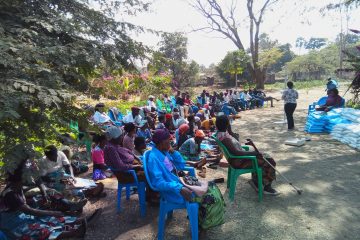The virus arrived relatively late in Malawi and, as at 18 th April, the Ministry of Health reported only 17 cases with just 2 deaths. But the country as a whole remains very vulnerable. On 3 rd April, the Guardian reported that: “In Malawi only 20 people a day can be tested for the virus, and there are just 25 intensive care beds and seven ventilators in the country of more than 18 million people. Since February, however, the Government has been racing to curb Covid’s arrival.”
It therefore came as no surprise to observers when, on Tuesday, 14 th April a nationwide lockdown was announced, to come into effect from Saturday, 17 th April. During the lockdown, all non-essential businesses and services were to close and non-essential movement was prohibited. According to reports from GardaWorld, Canada, all movement into and out of the country was suspended and a curfew was in effect from 19:00 to 06:30 (local time).
All cultural activities, private transport and sporting events were suspended. Bottle stores, bars, pubs, and clubs, including those in hospitality facilities, would close. Restaurants, public eating places, and fast food outlets would be closed to the public, except for takeaway services. All social gatherings and public events were also suspended. In addition, gatherings of more than five people were not permitted. Political rallies and events were also prohibited and religious gatherings were to be regulated.
However, Bloomberg has reported that, in a nation with a large informal business sector, this has led to widespread protests and an injunction order from the Malawi High Court, which has forced the Malawi Government to wait at least seven days before its lockdown can come into effect. The civil rights group wants the government to provide a social safety net for poor Malawians before it can go ahead with the measure.
The UK Department for International Development has provided £1.8 million to UNICEF Malawi, the International Monetary Fund will give US$150 million and on 16 th April the World Bank
announced a $37million grant to strengthen Malawi’s capacity to meet the outbreak.
In this situation, Ndi Moyo Palliative Care Centre aims to continue its work in delivering care to those who need it. We are raising money to cover the costs of PPE: surgical masks and gloves,
head gear and disposable gowns among other items. Prices of these items on the local market have trebled due to rising demand.


